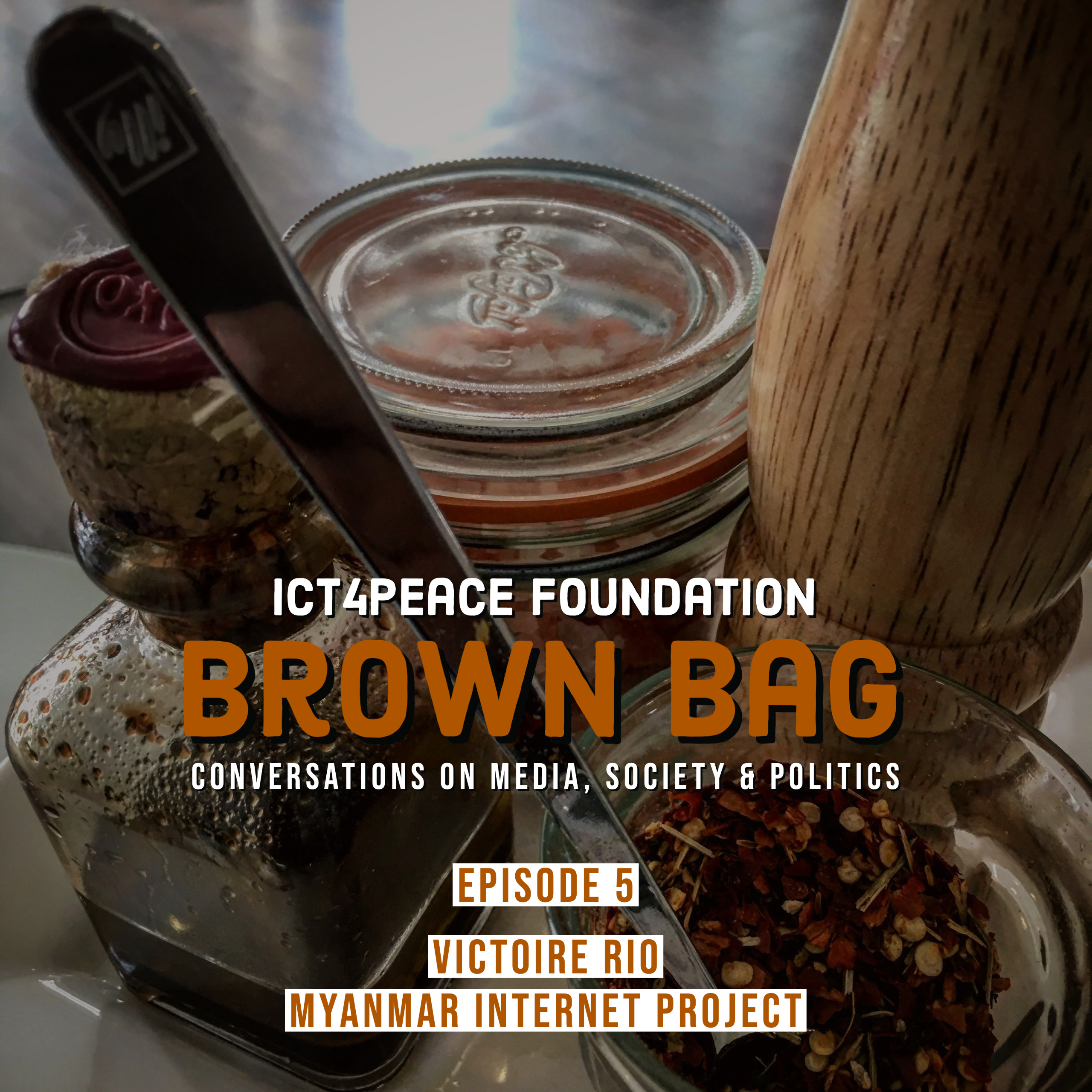ICT4Peace is delighted to release Episode 5 of Brown Bag, the ICT4Peace podcast series on social media, politics, democracy and society from a Global South perspective, hosted and produced by ICT4Peace Foundation’s Special Advisor, Dr Sanjana Hattotuwa.
In Episode 5, Hattotuwa speaks with Victoire Rio, an activist, researcher and currently working with The Myanmar Internet Project.
Listen to the podcast on SoundCloud or use the embedded player below, which also lists previous episodes. Brown Bag is also on Spotify, Google Podcasts, Amazon Music and Apple Podcasts. This production of this podcast series is supported by the Daniel Gablinger Foundation.
In this podcast, Rio’s lived experienced in, and long gaze looking at social media’s role in capturing Myanmar’s democratic potential, and well as the better known impact on genocide is the central focus of conversation.
Rio begins by providing a perspective of what’s going on, and wrong in Myanmar, which after the invasion of Ukraine by Russia was mostly erased from global news headlines. Recorded soon after the military junta executed four men (which as Human Rights Watch noted were the country’s first death sentences carried out in over 30 years), Rio notes the dire context on the ground, and how things have evolved over 2022.
Given how social media is used by both the junta as well as civil society, Rio unpacks how online content, and networks help resistance movements, and independent journalists to reclaim the space for dissent, as much as they are used for propaganda, and violently clamping down on activism. She specifically focusses on the relatively new role Telegram plays in the country.
Rio also problematises platform oversight, and enforcement – noting how material vital for war crimes investigations are deleted from platforms, making it both imperative, but also hard to back up content in a timely manner. This was connected to disinformation campaigns that were monetised on Meta/Facebook, and other social media platforms, fanning harmful propaganda. Rio also goes into enduring issues around how Meta’s product, and platform surfaces continue to be used by the junta.
The conversation captures cases brought against Meta, for its alleged role in the genocide of Rohingya, and the possibility of reparations. Rio also goes into how lessons learnt in, and from Myanmar, were used by Meta in its response to the situation in Ukraine, after the invasion by Russia.
The last part of the conversation touches on a number of issues including what social media platforms need to do more meaningfully to address the spread of harmful material, especially in a context like Myanmar, how what they say are active policies around dis-, and misinformation show significant variance in meaningful application, the degree to which profit is at odds with other policies around curtailing harm, and the need to more robustly archive content, in order to help with investigations in the future.
In September, Rio and the Myanmar Internet Project released a new report looking at the role Meta played in the Rohingya genocide.
What role did @Facebook play in the Rohingya genocide?
Today, we’re releasing a lot more details on what was happening on – and with – Facebook in the years leading up to the Myanmar military clearance operations.
👉 https://t.co/OBLohlgts8 pic.twitter.com/h5iFRL4mfS
— Victoire Rio | riovictoire@infosec.exchange (@riovictoire) September 29, 2022
This report coincided with another by Amnesty International, also looking at the role of Meta in the genocide.
In a new report, Amnesty International claims that Facebook’s algorithms “proactively amplified” anti-Rohingya content. It also alleges that Meta ignored civilians’ and activists’ pleas to curb hate-mongering while profiting from increased engagementhttps://t.co/uQ28SOIzB8
— TIME (@TIME) September 29, 2022
The podcast with Rio prefaced the issues in these two reports, and provides additional context, and grounded insights into issues flagged in both.

